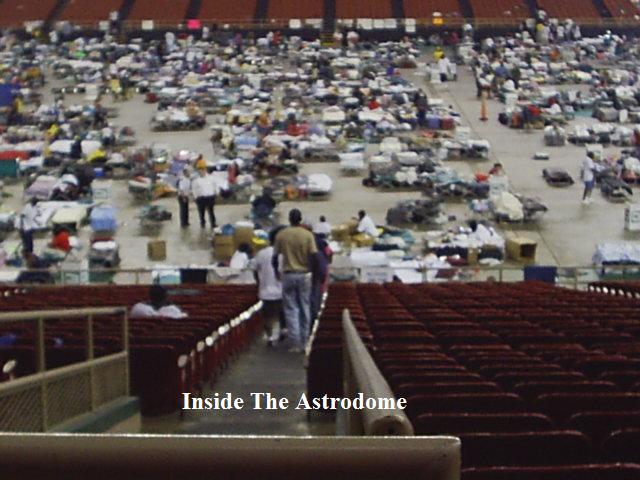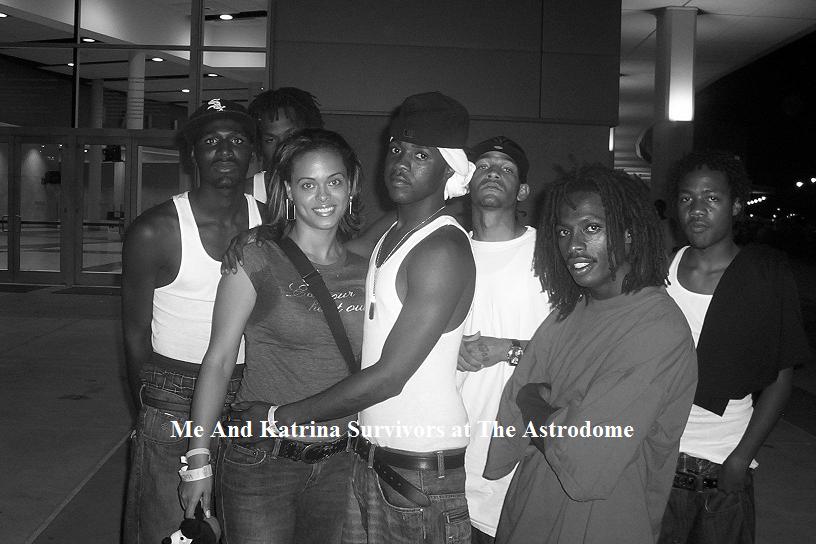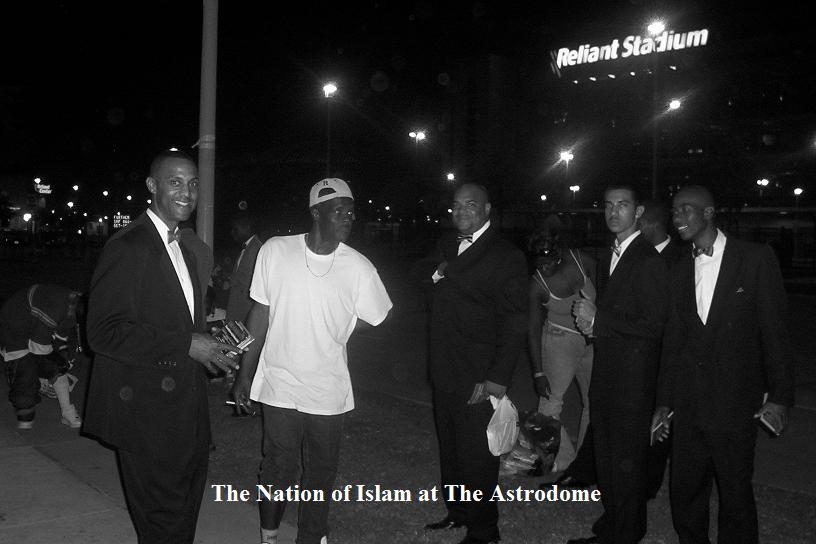#RememberKatrina: A National Conversation Through Digital Storytelling
In 2005 I didn't know what digital storytelling meant. The term had never crossed my mind. I just remember feeling compelled to tell a story with my old Panasonic Camcorder PV-L779D. I was a citizen journalist with a Myspace blog who aspired to be a documentary filmmaker.
Six months fresh out of college and less than a year into my first real teaching job in Houston, Texas, I found myself tracking cable news and Internet stories about the aftermath of hurricane Katrina. Twitter and Facebook weren't in my life at the time so Bill O'Reilly, Anderson Cooper, and Yahoo! News were the next best things. In one day, I had listened to over fifty televised broadcasts coming out of NOLA that highlighted missing children, dying grandmothers, and dead animals. I became obsessed with these stories to the point at which I too became depressed. I found refuge in blogging on Myspace about my experiences meeting survivors, which would later be archived in the Hurricane Digital Memory Bank. But as a twenty-four-year-old middle-school English teacher, I struggled to talk with my students about a natural disaster that happened 350-miles away. I couldn't articulate the calamity of a national tragedy using only words.
When I heard that survivors from NOLA were being bussed to the Houston Reliant Center--my backyard at the time, I dusted off my Panasonic camcorder and headed down 288-South. I didn't know what story I wanted to tell, I just knew that I wanted to talk with survivors and document their stories without the punditry, political diatribes, corporate influence, and commercial breaks. I also wanted to tell my story as a volunteer with the Red Cross.
During those few weeks of volunteering, I had the opportunity to get to know survivors through storytelling. I listened to them talk about how lucky they were to be rescued from the top floors of their homes and rooftops. They told me about losing all confidence in their local and state governments. Some stories I heard while standing in-between cots. Other stories I captured on camera while standing outside of what was then called "Reliant City".
After hours of volunteering and recording, I returned home mentally drained and emotionally depleted. I crawled into bed and turned the camera on myself. "This shit's getting to me," I said whipping away tears. "I can't go to sleep because I keep thinking about these people. I just want to help them." I was overwhelmed by the reality that the lives of 70,000+ U.S.-Americans would be consequentially altered forever. I knew that our country would never be the same. She'd be forced to confront a sordid past of racial inequality and political ineptitude, long before President Obama would become president 3 years later.
Looking back at the moment I broke down on camera, I realize now that I sounded like a naive and idealistic child. I thought that maybe documenting my tears and curses on camera could make a difference. I didn't realize I was up against a nation of forgetters.
The Statistics
Since hurricane Katrina there remains approximately 35,700 blighted homes and empty lots in New Orleans alone. The NOPD recently reported a 10% increase in overall crime in the city. Residents in neighboring states like Mississippi who were also affected by Katrina have seen noticeable spikes in insurance payments. For many neighborhoods affected by Katrina all that remain are cement blocks and overgrown weeds where homes once stood. Among the most devastated neighborhoods in NOLA is the Lower Ninth Ward, comprised of 95% African Americans. Despite $14.5 billion in floodgate and levee reconstruction, neighborhoods like Lower Ninth Ward remain noticeably neglected. Though NOLA has seen a diverse population increase since hurricane Katrina, its economic, social, and environmental trends remain troubling. Job cuts in major industries like tourism, oil and gas, and shipping, coupled with unaffordable housing costs, high crime rates, and loss of wetlands contribute to the mounting problems the Big Easy currently confronts since hurricane Katrina.
In efforts to remember our history, MEDIA MAKE CHANGE has launched #RememberKatrina, a national conversation through digital storytelling and social media. All this week, beginning Monday, August 27th through Friday, August 31st, MEDIA MAKE CHANGE (@mediamakechange) will engage in a national conversation with people around the country affected by hurricane Katrina. We begin our conversation on Twitter with several invited guests who will talk about their experiences and research related to hurricane Katrina. The goal is to get as many people talking on social networks, blogs, and via digital video. We believe that the power of storytelling can influence social and political transformation.
#RememberKatrina Is Personal
When I look back at the beginning of my journey as a media maker and educator, I see hurricane Katrina. I recognized that the events leading up to, during, and after the storm inform my current practices as an educator and media maker. These events made me a stronger listener, and in turn, a better storyteller. I learned how to pay attention to what wasn't being said so I could seek out what actually should be told. I developed a sharper eye so I could see through the propaganda and towards counter-narratives for truth-telling.
Since 2006, I've used my amateur documentary about hurricane Katrina, A Region of Survivors to connect with various communities. I've presented my work at universities, community centers, and conferences across the country. As a result, I've engaged professors, students, and community organizers to think critically about social, economic, and political issues relating to the most devastating (un)natural disaster in modern U.S.-history. I parlayed digital documentary, and subsequent other media, to build a community of rememberers. All this because of a storm and some broken levees.
Tell us your stories and join the conversation on Twitter all this week using the #RememberKatrina hashtag.



